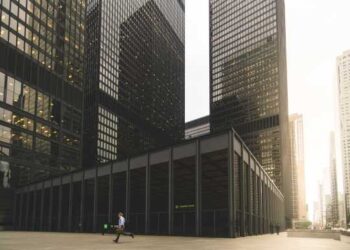Exploring the Rise of Corporate Sustainability Practices
In recent years, we have witnessed a significant shift in businesses worldwide towards embracing sustainability practices. As concerns about climate change, social inequality, and resource scarcity continue to grow, companies are recognizing the importance of incorporating sustainable initiatives into their operations. This blog post aims to explore the rise of corporate sustainability practices and shed light on the key drivers behind this trend.
One of the primary catalysts for the increased focus on sustainability is the realization that businesses can no longer operate in isolation from the broader environmental and social challenges we face. As industries become more interconnected, the impact of corporate activities on the planet and society becomes more apparent. Stakeholders, including customers, employees, investors, and regulators, are demanding greater accountability from corporations. In response, companies are adopting sustainability practices to address these concerns and build trust among their stakeholders.
Interestingly, the rise in sustainability practices also presents new opportunities for businesses. By embracing sustainable practices, companies can enhance their reputation and brand image, differentiate themselves in the market, and attract a new generation of environmentally conscious consumers. Moreover, sustainability initiatives often lead to cost savings through resource efficiency and waste reduction. By prioritizing innovation and adopting sustainable technologies, companies can reduce their dependence on traditional fossil fuels and improve overall operational efficiency.
Another influential factor driving the rise of corporate sustainability practices is the evolving regulatory landscape. Governments and international bodies are implementing stricter regulations and standards to mitigate the negative impacts of business activities on the environment and society. These regulations include carbon pricing mechanisms, emissions reduction targets, and stricter reporting requirements. To avoid potential penalties and reputational damage, businesses are proactively incorporating sustainability measures into their operations, ensuring compliance with local and global regulations.
Additionally, investors are increasingly considering environmental, social, and governance (ESG) factors when making investment decisions. ESG investing has gained traction as shareholders recognize the financial risks associated with unsustainable practices. Companies with strong sustainability profiles tend to attract more investment as investors seek long-term value and stability. As a result, businesses are integrating ESG considerations into their strategies to attract capital and ensure long-term financial success.
Furthermore, employee expectations are changing, particularly among younger generations. Studies have shown that millennials and Gen Z are more likely to seek employment with companies that align with their values and prioritize sustainability. By adopting sustainable practices, businesses can attract and retain top talent, improve employee morale and engagement, and foster a positive workplace culture. Employees play a crucial role in driving sustainability initiatives from within, as they often bring fresh perspectives and innovative ideas to the table.
In conclusion, the rise of corporate sustainability practices is undoubtedly a reflection of the increasing awareness surrounding environmental and social challenges. Businesses are recognizing the interconnectedness of their operations with the broader ecosystem and are actively working towards minimizing their impact on the planet and society. The drivers behind this trend include stakeholder demands, potential economic benefits, regulatory changes, investor considerations, and evolving employee expectations. As sustainability continues to gain prominence, it is imperative for companies to proactively integrate sustainable practices into their strategies to not only mitigate risks but also embrace the countless opportunities presented by a more sustainable future.












